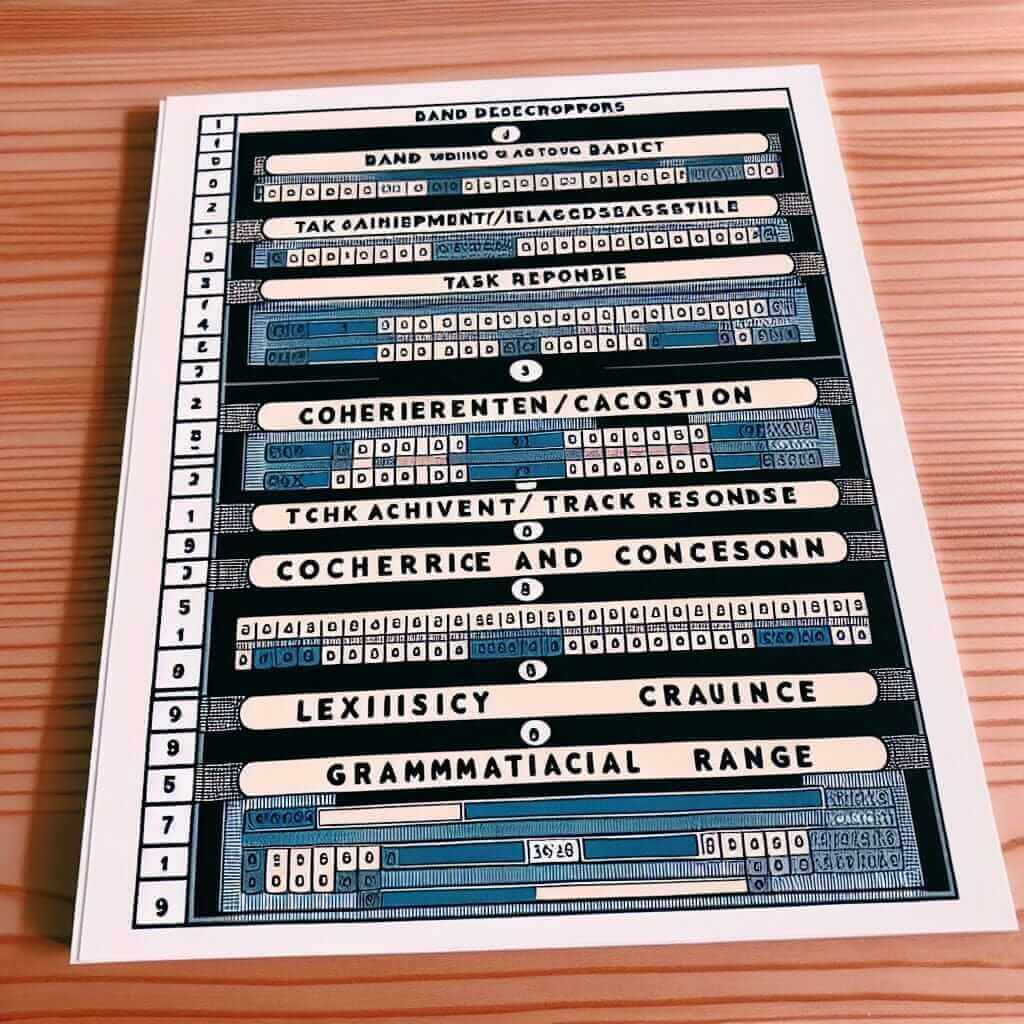As an IELTS instructor with over 20 years of experience, I often get asked by my students, “How is the IELTS Writing score calculated?” It’s a crucial question because understanding the scoring system can significantly impact your preparation strategy. This article will delve deep into the IELTS Writing marking criteria, providing you with clear insights to help you achieve your desired band score.
Deciphering the IELTS Writing Band Descriptors
The IELTS Writing test, both Academic and General Training, is assessed across four key criteria:
1. Task Response (or Task Achievement): This criterion assesses how well you have understood the task and addressed all its parts. It focuses on the content and ideas presented in your essay.
2. Coherence and Cohesion: This criterion evaluates the organization and clarity of your writing. It assesses how well you structure your essay, connect ideas logically, and use cohesive devices effectively.
3. Lexical Resource: This criterion examines the range and accuracy of your vocabulary. It assesses your ability to use a variety of words and phrases appropriately and effectively.
4. Grammatical Range and Accuracy: This criterion measures your ability to use a range of grammatical structures accurately. It assesses your control over grammar and syntax.
Each criterion carries equal weight (25%) in determining your final Writing band score. Examiners use detailed band descriptors to assess your performance against these criteria. For instance, to achieve a band 7 in Lexical Resource, you need to “use a sufficient range of vocabulary to allow some flexibility and precision” and “use less common lexical items with some awareness of style and collocation.”

How Your Essay is Graded
Two trained and certified examiners mark your IELTS Writing test. They use the band descriptors to assign a band score from 0 to 9 for each of the four criteria. These scores are then averaged to give you a final band score for the Writing test.
For example, if your scores for the four criteria are:
- Task Response: 7
- Coherence and Cohesion: 6
- Lexical Resource: 7
- Grammatical Range and Accuracy: 6
Your final Writing band score would be 6.5 ((7+6+7+6)/4 = 6.5).
Tips for Maximizing Your IELTS Writing Score
Here are some practical tips to help you improve your performance in the IELTS Writing test:
- Understand the band descriptors: Familiarize yourself with the specific requirements for each band score. This will help you understand what examiners are looking for and tailor your writing accordingly.
- Practice consistently: Regular writing practice is essential to improve your writing skills. Aim to write essays on a variety of topics, focusing on addressing all aspects of the task and applying the band descriptors.
- Seek feedback: Having a qualified IELTS instructor or a native English speaker review your writing can provide valuable insights and help you identify areas for improvement.
- Expand your vocabulary: Make a conscious effort to learn new words and phrases, paying attention to collocations and different registers.
- Master grammar rules: Ensure you have a strong grasp of English grammar rules, including tenses, articles, and sentence structures.
Conclusion
Understanding how your IELTS Writing score is calculated is crucial for effective preparation. By familiarizing yourself with the marking criteria, practicing regularly, and seeking feedback, you can confidently approach the Writing test and achieve your desired band score. Remember, consistency and a strategic approach are key to success in the IELTS Writing test.